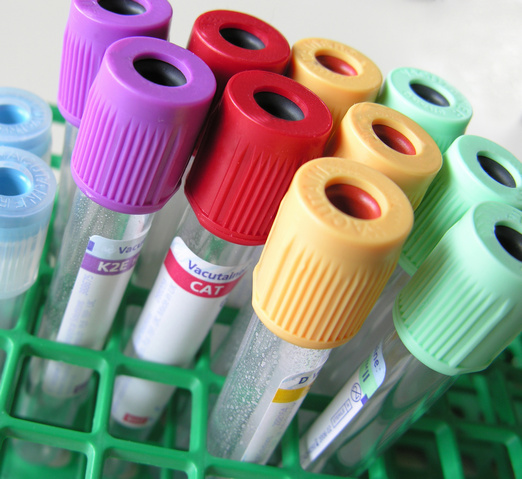Diabetes Screening and Diagnosis
Who Should Be Screened?
Everyone aged 45 and older should be screened for diabetes or glucose abnormalities every three years. However, individuals at higher risk should begin screening earlier and more frequently—ideally once a year.
Who Is Considered High-Risk?
You may be considered high-risk for diabetes if you have one or more of the following:
-
Overweight or obesity
-
Family history of Type 2 Diabetes
-
Age over 45
-
High blood pressure
-
Low HDL (“good”) cholesterol
-
Elevated triglycerides
-
History of prediabetes
-
History of gestational diabetes
-
History of coronary artery disease or peripheral vascular disease
-
Polycystic ovarian syndrome (PCOS)
-
Presence of acanthosis nigricans (darkened patches of skin, often around the neck or armpits)
-
Belonging to certain ethnic groups at higher risk, including:
-
African American
-
Hispanic or Latino
-
Native American
-
Alaskan Native
-
Asian American
-
Native Hawaiian or Pacific Islander
-
How Is Diabetes Diagnosed?
Diabetes is diagnosed through one or more of the following tests:
-
Random Blood Glucose Test:
-
A result over 200 mg/dL (11.1 mmol/L) with symptoms of high blood sugar is considered diagnostic.
-
-
Fasting Blood Glucose Test:
-
A result of 126 mg/dL (7.0 mmol/L) or higher on two separate occasions confirms diabetes.
-
Fasting should be at least 8 hours, with blood drawn before 9:00 a.m.
-
-
Oral Glucose Tolerance Test (OGTT):
-
After consuming 75 grams of glucose, a 2-hour blood glucose level of 200 mg/dL or higher confirms diabetes.
-
-
Hemoglobin A1c Test:
-
An A1c level of 6.5% or higher is also diagnostic of diabetes.
-
Common Symptoms of High Blood Sugar
Some people may not experience symptoms early on, but common signs of elevated blood glucose include:
-
Frequent urination (especially at night)
-
Excessive thirst
-
Blurred vision
-
Increased hunger
-
Unexplained weight loss
-
Fatigue or tiredness
-
Frequent infections (urinary tract, yeast, or skin)
If Pregnant
Screening for gestational diabetes:
Screening for Gestational Diabetes
Gestational diabetes mellitus (GDM) is a form of glucose intolerance that occurs during pregnancy. Identifying it early is important to protect both maternal and fetal health. Screening recommendations vary based on individual risk.
Who Should Be Screened?
Low-Risk Women
Women at low risk for developing glucose intolerance may not require testing for gestational diabetes. This applies only to those who meet all of the following criteria:
-
Healthy weight before pregnancy
-
No first-degree relatives with diabetes
-
No personal history of abnormal glucose
-
Not part of a high-risk ethnic group
High-Risk Women
Women should be screened early in pregnancy (first prenatal visit) if they meet any of the following:
-
Obesity
-
Prior history of gestational diabetes
-
Strong family history of Type 2 diabetes
-
Belong to a high-risk ethnic group (e.g., Hispanic, African-American, Native American, South or East Asian, Pacific Islander)
Screening Process
Initial Test (Early in Pregnancy for High-Risk Women)
-
A 50-gram glucose challenge test (GCT) is performed without regard to last meal or time of day.
-
One-hour plasma glucose ≥130 mg/dL is considered abnormal.
If the early screen is normal, a repeat screening is recommended later in pregnancy.
Routine Screening at 24–28 Weeks (for At-Risk Women)
-
The same 50-gram GCT is repeated.
-
If 1-hour plasma glucose ≥130 mg/dL, a diagnostic 3-hour glucose tolerance test is required.
Diagnostic 3-Hour Glucose Tolerance Test (100g)
Gestational diabetes is diagnosed if two or more of the following thresholds are met or exceeded:
| Time | Plasma Glucose Level (mg/dL) |
|---|---|
| Fasting | ≥ 95 mg/dL |
| 1 hour | ≥ 180 mg/dL |
| 2 hours | ≥ 155 mg/dL |
| 3 hours | ≥ 140 mg/dL |
Be Informed. Get In Control. Prevent.
Better late than never

Our Blog
Follow Along
Disaster Planning
you never know When Disaster Occurs Emergency Preparedness for People with Diabetes When natural disasters or emergencies strike—such as hurricanes, floods, wildfires, or power outages—being prepared can protect your health and even save your life. Everyone with...
Neuropathy
Important to reduce all risk factors Diabetic neuropathy Diabetic neuropathy, a common complication of diabetes, encompasses various types of nerve damage resulting from prolonged high blood sugar levels. It can affect different parts of the nervous system, leading to...
Insulin Pump
Important Features Insulin Pump An insulin pump is a small, wearable device that helps people with diabetes manage their blood sugar levels by delivering insulin continuously throughout the day and night. This means you don't have to give yourself multiple daily...
Contact Us
The newsletter is only sent if there are any new blogs or articles added.


